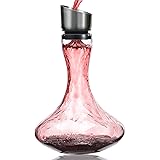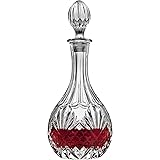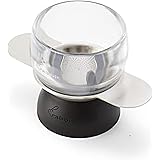The Profound Impact of an Alcohol-Free Month: Understanding What Happens When You Don’t Drink Alcohol
Reports indicate that a substantial percentage of adults, upwards of 15-20% in some regions, consider or participate in initiatives like Dry January each year. This widespread curiosity often stems from a desire to understand the health implications of alcohol consumption. As humorously explored in the video above, the immediate, intuitive answer to “What happens to your body when you don’t drink alcohol for a month?” might be elusive for many individuals.
However, scientific observations and anecdotal evidence consistently reveal a multitude of significant changes that can be experienced when alcohol is removed from one’s diet for even a short period. This comprehensive exploration aims to shed light on the various physiological and psychological benefits that are commonly reported by individuals who embrace an alcohol-free month.
Enhanced Sleep Quality and Restorative Periods
One of the most frequently observed improvements during an alcohol-free month involves sleep patterns. While alcohol might initially induce drowsiness, its consumption is often associated with disrupted sleep cycles, particularly during the latter half of the night. Individuals commonly report a reduction in REM sleep, which is crucial for cognitive functions and emotional regulation.
Consequently, when alcohol is removed, deeper and more restorative sleep phases are typically experienced. Imagine waking up feeling genuinely refreshed and energized, rather than experiencing that lingering grogginess often attributed to an impaired sleep cycle. This shift can significantly impact daily productivity and overall well-being, as the body and mind are allowed to truly recover.
Significant Improvements in Liver Health
The liver is primarily responsible for metabolizing alcohol, and regular consumption can place a considerable strain on this vital organ. Chronic alcohol intake can lead to conditions such as fatty liver disease, alcoholic hepatitis, and cirrhosis, which significantly impair liver function. Therefore, even a month of abstinence can provide a crucial period of respite for the liver.
During an alcohol-free month, the liver is afforded the opportunity to begin repairing itself and reducing fat deposits. Blood tests often reveal lower levels of liver enzymes, indicating a decrease in inflammation and cellular damage. This detoxification process is highly beneficial, contributing to improved metabolic function and enhancing the body’s natural ability to process other toxins effectively.
Positive Changes in Weight Management
Alcoholic beverages are often referred to as “empty calories” because they provide energy without offering substantial nutritional value. Furthermore, many alcoholic drinks are high in sugar, further contributing to caloric intake. These calories can quickly accumulate, leading to weight gain over time, especially when coupled with the tendency to make less healthy food choices while under the influence of alcohol.
Consequently, abstaining from alcohol for a month frequently results in a noticeable reduction in caloric intake, which can lead to modest weight loss. Imagine easily cutting hundreds of calories from your weekly diet simply by opting for non-alcoholic alternatives. Moreover, improved sleep and better energy levels can encourage increased physical activity, further supporting weight management goals.
Greater Mental Clarity and Mood Stabilization
Alcohol is a depressant that affects the central nervous system, and regular consumption can exacerbate feelings of anxiety and depression. While alcohol might temporarily seem to alleviate stress, it often disrupts neurotransmitter balance, leading to a rebound effect where anxiety or low mood can intensify the following day. This cycle can contribute to a perpetual feeling of unease.
When an individual embarks on an alcohol-free month, many report a significant improvement in mental clarity and a more stable mood. Decision-making processes often become sharper, and feelings of anxiety are frequently reduced. Furthermore, cognitive functions such as memory and concentration can be enhanced, allowing for greater focus and productivity in daily tasks.
Enhanced Appearance of Skin and Hair
Alcohol acts as a diuretic, meaning it promotes the excretion of water from the body, leading to dehydration. This dehydration is often reflected in the skin, which can appear dull, dry, and lacking in elasticity. Additionally, alcohol can dilate blood vessels, contributing to redness and a flushed appearance, particularly in the face.
Therefore, when alcohol consumption is ceased, the body can rehydrate more effectively, which is often visible through improvements in skin complexion. Many individuals observe a more hydrated, radiant, and even-toned appearance. Hair health can also benefit from better hydration and nutrient absorption, contributing to a healthier look and feel.
Notable Financial Savings and Budgetary Control
The cost of alcoholic beverages, particularly when consumed regularly or in social settings, can accumulate surprisingly quickly. From expensive bottles of wine to craft beers and cocktails, these expenditures often go unnoticed in the overall monthly budget. Consequently, the financial impact of alcohol consumption is frequently underestimated by individuals.
When an alcohol-free month is undertaken, a noticeable amount of money is typically saved, which can then be redirected towards other pursuits or savings goals. Imagine having extra funds available for a new hobby, a short trip, or simply reinforcing your financial stability. This tangible financial benefit often provides an additional motivation for maintaining abstinence or moderating future consumption.
Opportunities for New Habit Formation
The decision to not drink alcohol for a month extends beyond mere abstinence; it presents a valuable opportunity to reassess existing routines and develop healthier habits. Many social interactions and daily wind-down rituals are often centered around alcohol. Therefore, removing alcohol necessitates finding alternative coping mechanisms and enjoyment strategies.
During this period, individuals can explore new forms of relaxation, discover non-alcoholic beverage options, or engage in activities that do not involve drinking. Furthermore, this break can lead to a more mindful relationship with alcohol in the long term, enabling more conscious choices about when and how much to consume. The positive effects experienced during an alcohol-free month can powerfully reinforce a desire for sustained well-being.







